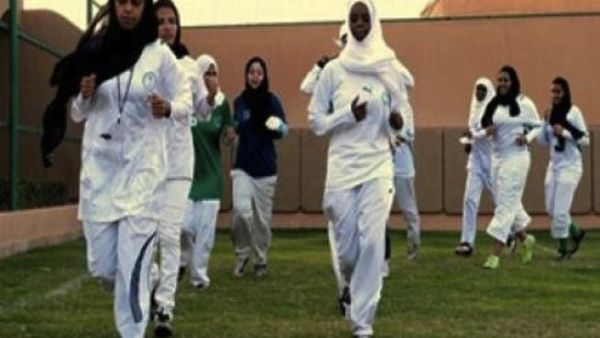The document’s hesitancy to tackle social and political reforms that will have to support inevitable economic reform raises questions about the government’s ability to turn Saudi Arabia into a 21st century, diversified knowledge economy that will be able to nurture a private sector and a technocracy capable of playing its part and attract the foreign investment that will be needed.
Sports may not be a central pillar of economic reform. It was however important enough to be highlighted in the government’s Vision 2030. Saudi Arabia’s plans to turn its economy around is driven by perceptions of the end of oil and tumbling commodity prices that force the government to restructure its sources of income. Past failed efforts to do so were the result of a less pressing need and the willingness of the international community to endorse a regime that refused to adhere to human rights, including those of women. The result has been the spread of a backward looking, intolerant and puritan interpretation of Islam that has made its mark globally and at times has become a breeding ground for Islamist militancy.
International sporting associations have played their part in this complacency and continue to do so. The associations’ efforts to further women’s sporting rights lack resolve and forcefulness not only in their attitude towards Saudi Arabia but also towards Iran, the world’s only other country that bans women from attending male sporting events. Yet, both Saudi Arabia and Iran given their need for international contributions to their economic turn arounds may be more susceptible to pressure than they have been in the past.
Saudi Arabia’s Vision 2030 by implication lays out multiple areas where foreign investment and know-how will be needed. Iran is embarking on massive rehabilitation following the recent lifting of punitive economic sanctions as part of its nuclear agreement with world powers and is seeking to re-establish itself as a regional hegemon. Saudi Arabia has however yet to follow Iran and other Middle Eastern and North African nations in seriously seeking to project itself internationally by hosting major sporting events.
Iranian efforts so far have focussed on football and volleyball. The International Volleyball Federation (FIVB) nonetheless backed away in recent days from its earlier insistence that Iran allow women to watch men’s matches if it wants to be awarded hosting rights. It did so after its efforts failed to persuade Iran to lift the ban for this year’s Kish Island Open leg of the Beach Volleyball World Tour. The FIVB backdown is all the more curious given that the volleyball ban constitutes a hardening of Iran’s position. In contrast to the ban on women attending football matches that dates back to the 1979 Islamic revolution, women were only barred from volleyball events in 2012.
The FIVB had vowed in 2014 not to award further events to Iran following the arrest of British-Iranian national Ghoncheh Ghavami on charges of waging "propaganda against the regime" for attempting to attend an attending an FIVB World League match in Tehran. Ms. Ghavami spent 151 days in Tehran’s notorious Evin prison before she was released and charges eventually dropped.
The FIVB has since concluded that Iran’s complex religious politics make it unlikely that firm pressure will produce results. Like the IOC, it has opted for an ad-hoc approach with little evidence that there is greater hope for success. "Volleyball is not relevant enough for the government to set a precedent and change... At least by allowing Iran to host events, the conditions for people to express their views and opposition are there… We would be punishing a whole generation of athletes trying to get into the sport by not holding any events in Iran,” said an FIVB official.
The FIVB is however unlikely to have any more success as it seeks to persuade Iran to allow women to attend the attend the FIVB World League in Iran in July.
Ultimately, achieving women’s rights is a struggle that has to be waged domestically in Saudi Arabia and Iran. The crackdowns on dissent in both countries hold out little hope that international sporting events will spark the kind of debate that leads to change. The battle between recalcitrant governments and international sporting associations is one of who has greater resolve and the longer breath. That is a battle that for now despite their vulnerabilities governments in Riyadh and Tehran are winning.
James M. Dorsey








